|
Books Should Be Free Loyal Books Free Public Domain Audiobooks & eBook Downloads |
|
|
Books Should Be Free Loyal Books Free Public Domain Audiobooks & eBook Downloads |
|
Romance Novels |
|---|
|
Book type:
Sort by:
View by:
|
By: H. C. Bailey (1878-1961) | |
|---|---|
 The Highwayman
The Highwayman
A romance and adventure novel, set in England during the reign of Queen Anne. The book is much unlike the author's later detective short stories. The actual book is difficult to locate and appears to have been forgotten. It is not even listed by Wiki as part of the author's work, nevermind have any information on the book itself. | |
By: Henry J. Ford (1860-1941) | |
|---|---|
 The Book of Romance
The Book of Romance
| |
By: Joseph Crosby Lincoln (1870-1944) | |
|---|---|
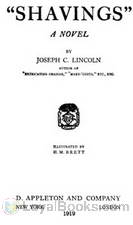 Shavings
Shavings
| |
By: Gertrude Atherton (1857-1948) | |
|---|---|
 Daughter Of The Vine
Daughter Of The Vine
We are introduced to Englishman Dudley Thorpe on the evening of his arrival in California. At a ball, he is introduced to several belles, including the lovely Nina Randolph. Is this the start of something special? Dudley thinks so, but what about Nina? Why won't she open herself up to love? She is obviously attracted to Dudley. What is the dark secret she is hiding? Will it make a difference to Dudley's feelings? Who will be there for her in her time of need? Dudley or her odious cousin, Richard Clough? And what will San Francisco society make of it all? | |
 Sleeping Fires
Sleeping Fires
The story of a love so strong that neither the rigid rules of Society in California in the 1800s nor the very bowels of hell could keep a young woman from the love she had found. A story rich in fashion ad feminism showing how determination and love could overcome all obstacles. | |
By: Samuel Hopkins Adams (1871-1958) | |
|---|---|
 The Clarion
The Clarion
| |
By: Edward P. Roe (1838-1888) | |
|---|---|
 He Fell in Love with His Wife
He Fell in Love with His Wife
James desperately needs someone to help him keep his farm going, but has failure after colossal failure finding a good housekeeper. Alida marries a man only to find out he's already married. She's so undone when she finds out that she just wants to go somewhere where no one will judge her for her misfortune, where she can work and keep herself fed and clothed. James and Alida meet and arrange for a strictly business marriage, leaving loving and honoring out of the vows. The title of the book tells the rest of the story, but the way it gets there is worth the journey. (Introduction by TriciaG) | |
By: David Graham Phillips (1867-1911) | |
|---|---|
 The Fortune Hunter
The Fortune Hunter
| |
 The Price She Paid
The Price She Paid
| |
 The Cost
The Cost
| |
By: Henry Drummond | |
|---|---|
 The Greatest Thing in the World and Other Addresses
The Greatest Thing in the World and Other Addresses
The spiritual classic The Greatest Thing In the World is a trenchant and tender analysis of Christian love as set forth in the thirteenth chapter of I Corinthians. The other addresses speak to other aspects of Christian life and thought. | |
By: Richard Le Gallienne (1866-1947) | |
|---|---|
 Old Love Stories Retold
Old Love Stories Retold
| |
By: Ellen Anderson Gholson Glasgow (1873-1945) | |
|---|---|
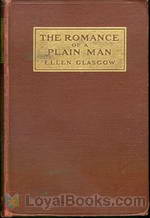 The Romance of a Plain Man
The Romance of a Plain Man
| |
By: William S. Gilbert (1836-1911) | |
|---|---|
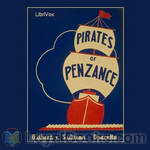 The Pirates of Penzance
The Pirates of Penzance
The Pirates of Penzance; or, The Slave of Duty is a comic opera in two acts, with music by Arthur Sullivan and libretto by W. S. Gilbert. The story concerns Frederic, who, having completed his 21st year, is released from his apprenticeship to a band of tender-hearted pirates. He meets Mabel, the daughter of Major-General Stanley, and the two young people fall instantly in love. Frederic finds out, however, that he was born on 29 February, and so, technically, he only has a birthday each leap year... | |
By: Henry Gilbert (1868-1937) | |
|---|---|
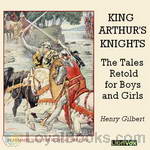 King Arthur's Knights: The Tales Retold for Boys & Girls
King Arthur's Knights: The Tales Retold for Boys & Girls
This book is an attempt to tell some of the stories of King Arthur and his Knights in a way which will be interesting to every boy and girl who loves adventures. (Introduction by Henry Gilbert) | |
By: William Austen-Leigh | |
|---|---|
 Jane Austen, Her Life and Letters A Family Record
Jane Austen, Her Life and Letters A Family Record
| |
By: F. Hamilton Jackson (1848-1923) | |
|---|---|
 The Shores of the Adriatic The Austrian Side, The Küstenlande, Istria, and Dalmatia
The Shores of the Adriatic The Austrian Side, The Küstenlande, Istria, and Dalmatia
| |
By: Samuel R. Crockett (1860-1914) | |
|---|---|
 Patsy
Patsy
| |
By: M. I. (Maud Isabel) Ebbutt (1867-) | |
|---|---|
 Hero-Myths & Legends of the British Race
Hero-Myths & Legends of the British Race
| |
By: Dornford Yates (1885-1960) | |
|---|---|
 Jonah and Co.
Jonah and Co.
| |
By: Nell Speed (1878-1913) | |
|---|---|
 Molly Brown's Orchard Home
Molly Brown's Orchard Home
| |
By: Josephine Daskam Bacon (1876-1961) | |
|---|---|
 The Courting Of Lady Jane
The Courting Of Lady Jane
| |
 Mrs. Dud's Sister
Mrs. Dud's Sister
| |
 In The Valley Of The Shadow
In The Valley Of The Shadow
| |
 A Philanthropist
A Philanthropist
| |
 Julia The Apostate
Julia The Apostate
| |
 A Reversion To Type
A Reversion To Type
| |
By: Edward M. Hull (1880-1947) | |
|---|---|
 Sheik
Sheik
The novel on which the famous silent movie starring Rudolf Valentino was based. The plot is set in motion as Lady Conway disapproves of Diana's planning a desert trip with just her Arab guides to accompany her. Diana gets kidnapped by the Sheik, Ahmed Ben Hassan. Finally allowed to ride in the desert alone, she plans an escape. However, the Sheik recaptures her. And so the story unfolds. | |
By: Bertrand W. Sinclair (1881-1972) | |
|---|---|
 Poor Man's Rock
Poor Man's Rock
| |
By: Mrs. Henry Wood (1814-1887) | |
|---|---|
 Channings
Channings
This is a saga about life in a small town in England during the Victorian era. The "stars" of this saga are the Channings. Mr. Channing was ill and, because of his poverty, his six children have to work. Many things happen during this saga: a man confesses to a theft which he thinks his brother did, a lady is engaged to a gentleman much above her station, and so much more. But in the middle of all this you can find plenty of family love. | |
By: Anne Warner (1869-1913) | |
|---|---|
 The Rejuvenation of Aunt Mary
The Rejuvenation of Aunt Mary
| |
By: Frances Milton Trollope (1779-1863) | |
|---|---|
 Vicar of Wrexhill
Vicar of Wrexhill
A villainous vicar insinuates himself into the life of a wealthy but foolish widow, ruining the fortunes and happiness of her three children, until they begin to fight back. Published in 1837 by the mother of the better-known Anthony Trollope, this highly readable romance portrays the evangelical movement of the Anglican church in a shocking light that may remind readers of some of the religious abuses of the present day. | |
By: Ludovic Halévy (1834-1908) | |
|---|---|
 L'Abbe Constantin
L'Abbe Constantin
| |
By: Holman Day (1865-1935) | |
|---|---|
 Blow The Man Down A Romance Of The Coast - 1916
Blow The Man Down A Romance Of The Coast - 1916
| |
By: Sanford Bell | |
|---|---|
 A Preliminary Study of the Emotion of Love between the Sexes
A Preliminary Study of the Emotion of Love between the Sexes
| |
By: Reuel Howe (1905-1985) | |
|---|---|
 Herein is Love
Herein is Love
Prescient look at the church, its message and role in society, both perceived and true, focused through the lens of the biblical doctrine of love, and demonstrated in relationships between parent and child, parishioners and public, and pastor and people. | |
By: Nellie L. McClung (1873-1951) | |
|---|---|
 The Second Chance
The Second Chance
| |
By: Harriet T. (Harriet Theresa) Comstock (1860-) | |
|---|---|
 The Shield of Silence
The Shield of Silence
| |
By: Margaret Widdemer (1884-1978) | |
|---|---|
 Rose Garden Husband
Rose Garden Husband
This novel was written by Margaret Widdemer, who won the Pulitzer prize for her collection of poetry in 1919. Phyllis is a 25-years-old children's librarian. She is good at her job. Yet when she sees a girl from her hometown with two children, she discovers she wants more. She marries an invalid who is expected to die. Would she find the love and sense of belonging she craves for? And would he really die? Note: This book is in the public domain in the USA. The author died in 1978 so may still be protected by copyright in many other countries. | |
By: George Randolph Chester (1869-1924) | |
|---|---|
 The Early Bird A Business Man's Love Story
The Early Bird A Business Man's Love Story
| |
 The Making of Bobby Burnit Being a Record of the Adventures of a Live American Young Man
The Making of Bobby Burnit Being a Record of the Adventures of a Live American Young Man
| |
By: Katherine Cecil Thurston (1875-1911) | |
|---|---|
 The Mystics A Novel
The Mystics A Novel
| |
By: Margaret Pedler (-1948) | |
|---|---|
 The Moon out of Reach
The Moon out of Reach
| |
By: Augusta J. Evans (1835-1909) | |
|---|---|
 Macaria
Macaria
| |
 Beulah
Beulah
| |
By: Eleanor M. Ingram (1886-1921) | |
|---|---|
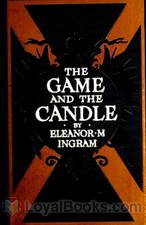 Game and the Candle
Game and the Candle
Faced with inherited debts, an estate to maintain, and no money to pay for either, brothers John and Robert Allard have a difficult decision to make. How much of their integrity are they willing to compromise in order to save their aunt and cousin from a life of poverty and to preserve "all that they call life"? Two young men with a classical education, no trade, and no outstanding talents have little chance to make the fortune they need while staying on the right side of the law. Especially as they only have six months..... ( | |
By: H. A. (Hiram Alfred) Cody (1872-1948) | |
|---|---|
 Glen of the High North
Glen of the High North
| |
By: Honoré Morrow (1880-1940) | |
|---|---|
 The Heart of the Desert Kut-Le of the Desert
The Heart of the Desert Kut-Le of the Desert
| |
By: John Philip Sousa (1854-1932) | |
|---|---|
 The Fifth String
The Fifth String
| |
 The Fifth String
The Fifth String
| |
By: Henry Harland (1861-1905) | |
|---|---|
 The Lady Paramount
The Lady Paramount
| |
By: Ethel Hueston (1887-) | |
|---|---|
 Prudence of the Parsonage
Prudence of the Parsonage
| |
 Sunny Slopes
Sunny Slopes
| |
By: Margaret M. (Margaret Murray) Robertson (1821-1897) | |
|---|---|
 Janet's Love and Service
Janet's Love and Service
| |
By: Clara Louise Burnham (1854-1927) | |
|---|---|
 In Apple-Blossom Time A Fairy-Tale to Date
In Apple-Blossom Time A Fairy-Tale to Date
| |
By: Mary Cholmondeley (1859-1925) | |
|---|---|
 Prisoners Fast Bound In Misery And Iron
Prisoners Fast Bound In Misery And Iron
| |
By: Will Lillibridge (1878-1909) | |
|---|---|
 Arcadia in Avernus
Arcadia in Avernus
Unhappy wife leaves marriage of convenience for another man, the couple running away to the Dakota prairie to set up housekeeping. All seems romantically well... until the ex shows up. Surprisingly modern (if a little theatrical) novella from the early 1900's. From the posthumous collection of Lillibridge short stories, A Breath of Prairie, 1911. | |
By: August von Kotzebue (1761-1819) | |
|---|---|
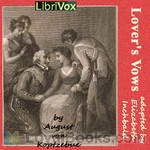 Lover's Vows
Lover's Vows
Lovers' Vows (1798), a play by Elizabeth Inchbald arguably best known now for having been featured in Jane Austen's novel Mansfield Park (1814), is one of at least four adaptations of August von Kotzebue's Das Kind der Liebe (1780; literally "Child of Love," or "Natural Son," as it is often translated), all of which were published between 1798 and 1800. Inchbald's version is the only one to have been performed. Dealing as it does with sex outside marriage and illegitimate birth, Inchbald in the Preface to the published version declares herself to have been highly sensitive to the task of adapting the original German text for "an English audience... | |
By: Anne Douglas Sedgwick (1873-1935) | |
|---|---|
 Franklin Kane
Franklin Kane
| |
By: Sarojini Naidu (1879-1949) | |
|---|---|
 Golden Threshold
Golden Threshold
Sarojini Naidu was a remarkable woman. Known as the Nightingale of India, she started writing at the age of thirteen and throughout her life composed several volumes of poetry, writing many poems which are still famous to this day. As well as being a poet, Naidu was an activist and politician, campaigning for Indian independence and became the first Indian woman to attain the post of President of the Indian National Congress. This volume contains the beautiful 'Indian Love-Song', as well as many other moving verses... | |
By: Henry Russell Miller (1880-1955) | |
|---|---|
 The House of Toys
The House of Toys
| |
By: Charles Garvice (-1920) | |
|---|---|
 The Woman's Way
The Woman's Way
| |
By: Ross Beeckman | |
|---|---|
 Princess Zara
Princess Zara
| |
 The Last Woman
The Last Woman
| |
By: W. J. (William James) Dawson (1854-1928) | |
|---|---|
 The Empire of Love
The Empire of Love
| |
By: Seth Curtis Beach (1837-1932) | |
|---|---|
 Daughters of the Puritans A Group of Brief Biographies
Daughters of the Puritans A Group of Brief Biographies
| |
By: Henry Theophilus Finck (1854-1926) | |
|---|---|
 Primitive Love and Love-Stories
Primitive Love and Love-Stories
| |
By: Mary Keith Medbery Mackaye (1845-1924) | |
|---|---|
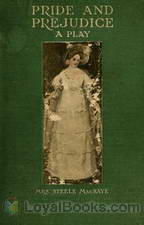 Pride and Prejudice: A Play
Pride and Prejudice: A Play
Pride and Prejudice, a comedy of manners and marriage, is the most famous of Jane Austen's novels. In this dramatic adaption by Mary Keith Medbery Macakaye some liberties are taken with the storyline and characters, but it is still a fun listen or read. Perhaps a good introduction for someone not ready to tackle the complete novel ~ and for the reader familiar with the work, a laugh can be had at the changes that were made in order to adapt it to the stage | |
By: William Withering (1741-1799) | |
|---|---|
 An Account of the Foxglove and some of its Medical Uses With Practical Remarks on Dropsy and Other Diseases
An Account of the Foxglove and some of its Medical Uses With Practical Remarks on Dropsy and Other Diseases
| |
By: Ruth Comfort Mitchell (1882-1954) | |
|---|---|
 Play the Game!
Play the Game!
| |
By: Leroy Scott (1875-1929) | |
|---|---|
 Children of the Whirlwind
Children of the Whirlwind
| |
By: Eugene Walter (1874-1941) | |
|---|---|
 The Easiest Way A Story of Metropolitan Life
The Easiest Way A Story of Metropolitan Life
| |
By: David Carpenter Knight | |
|---|---|
 The Love of Frank Nineteen
The Love of Frank Nineteen
| |
By: Molly Elliot Seawell (1860-1916) | |
|---|---|
 Throckmorton
Throckmorton
This is a novel about the lives of the members of the Temple family and their connections in Tidewater, Virginia, in the Reconstruction era. The widow Judith Temple and her sister in law Jacqueline live quietly on the Temple plantation, when the widower George Throckmorton returns to Tidewater. He had joined the Union Army in the war, and led with distinction. The lives of the girls are turned upside-down.. | |
By: Stella Benson (1892-1933) | |
|---|---|
 This Is the End
This Is the End
Some books have plots that drive relentlessly toward a conclusion. Others, like "This Is The End", just meander. It is the story of a Family halfheartedly searching for a missing relation who does not want to be found, while just off-stage, World War I is raging on the continent. It is a story about ordinary people trying to live ordinary lives in extraordinary times. The things they do are less important than the ways in which they do them: often comic, occasionally tragic, but always touching and true to life. It reminds us that Poetry and Romance can be found anywhere, hidden beneath the surface of the most commonplace things. | |
By: Richard Lovell Edgeworth (1744-1817) | |
|---|---|
 Richard Lovell Edgeworth A Selection From His Memoirs
Richard Lovell Edgeworth A Selection From His Memoirs
| |
By: Jesse Lynch Williams (1871-1929) | |
|---|---|
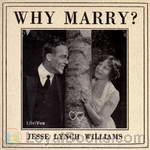 Why Marry?
Why Marry?
Why Marry? is a comedy, which "tells the truth about marriage". We find a family in the throes of proving the morality of marriage to a New Age Woman. Can the family defend marriage to this self-supporting girl? Will she be convinced that marriage is the ultimate sacredness of a relationship or will she hold to her perception that marriage is the basis of separating two lovers."Why Marry?" won the first Pulitzer Prize for Drama. | |
By: Stephen McKenna (1888-1967) | |
|---|---|
 The Education of Eric Lane
The Education of Eric Lane
| |
By: Cosmo Hamilton (1879-1942) | |
|---|---|
 Who Cares? a story of adolescence
Who Cares? a story of adolescence
| |
By: Saint John of Damascus (676?-749) | |
|---|---|
 Barlaam and Ioasaph
Barlaam and Ioasaph
| |
By: Julia Magruder (1854-1907) | |
|---|---|
 A Beautiful Alien
A Beautiful Alien
| |
By: Susan Edmonstoune Ferrier | |
|---|---|
 Marriage, Volume 1
Marriage, Volume 1
“Love!–A word by superstition thought a God; by use turned to an humour; by self-will made a flattering madness.” – Alexander and Campaspe. Lady Juliana, the indulged and coddled seventeen (”And a half, papa”) year old daughter of the Earl of Cortland, is betrothed by her father to a wealthy old Duke who can give her every luxury. She instead runs away and marries her very handsome but penniless lover. Very soon, they are forced to travel to Scotland to live with his quirky family in a rundown “castle” in the barren wilderness. Can this marriage survive?(Summary by P.Cunningham) | |
By: Jessie Fothergill (1851-1891) | |
|---|---|
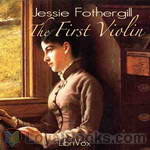 The First Violin
The First Violin
May Wedderburn is a quiet provincial girl, living in small and seemingly boring Skernford. Underneath the dull exterior, there is mystery, suspicion and fear in this little town, surrounding the austere local wealthy landowner who is very interested in marrying poor May. It looks as though she will have to marry him whether she likes it or not until an unsuspected alliance is formed between her and a respected old lady. They both escape to Germany where music and excitement await them. | |
By: Thomas Shaw (1843-1918) | |
|---|---|
 Clovers and How to Grow Them
Clovers and How to Grow Them
| |
By: Munson Aldrich Havens (1873-1942) | |
|---|---|
 Old Valentines A Love Story
Old Valentines A Love Story
| |
By: Esther Chamberlain | |
|---|---|
 The Coast of Chance
The Coast of Chance
| |
By: Florence A. (Florence Antoinette) Kilpatrick (1888-) | |
|---|---|
 Our Elizabeth A Humour Novel
Our Elizabeth A Humour Novel
| |
By: Olive M. (Olive Mary) Briggs (1873-) | |
|---|---|
 The Black Cross
The Black Cross
| |
By: A. Ethelwyn Wetherald (1857-1940) | |
|---|---|
 An Algonquin Maiden A Romance of the Early Days of Upper Canada
An Algonquin Maiden A Romance of the Early Days of Upper Canada
| |
By: W. Pett (William Pett) Ridge (-1930) | |
|---|---|
 Love at Paddington
Love at Paddington
| |
By: Roy Irving Murray | |
|---|---|
 August First
August First
| |
By: Margaret Peterson (1883-1933) | |
|---|---|
 To Love
To Love
| |
By: James Milne (1865-1951) | |
|---|---|
 The Black Colonel
The Black Colonel
| |
By: Edmund Day (1866-1923) | |
|---|---|
 The Round-Up A romance of Arizona novelized from Edmund Day's melodrama
The Round-Up A romance of Arizona novelized from Edmund Day's melodrama
| |
By: E. Temple (Ernest Temple) Thurston (1879-1933) | |
|---|---|
 Sally Bishop A Romance
Sally Bishop A Romance
| |
By: Charles Goff Thomson | |
|---|---|
 Terry A Tale of the Hill People
Terry A Tale of the Hill People
| |
By: David Whitelaw | |
|---|---|
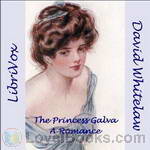 The Princess Galva
The Princess Galva
Edward Povey had been a correspondence clerk for twenty-two years when he was summarily dismissed. So how did he find himself mixed up with an orphan girl, who was really a princess, as she sought to reclaim her throne from the man who had killed her parents? Well, however it had happened, it was romantic. And after two decades in the basement office of a shipping company, he was ready for a bit of romance. (Introduction by MaryAnn) | |
By: H. Lovett Cameron | |
|---|---|
 Vera Nevill Or, Poor Wisdom's Chance
Vera Nevill Or, Poor Wisdom's Chance
| |
By: Ellen Thorneycroft Fowler (1860-1929) | |
|---|---|
 The Farringdons
The Farringdons
| |